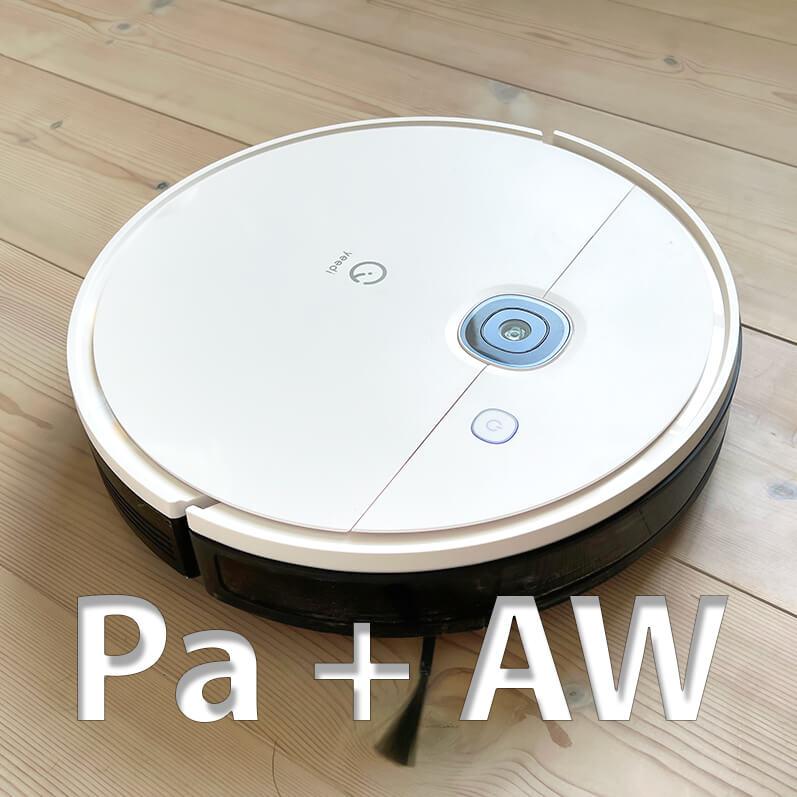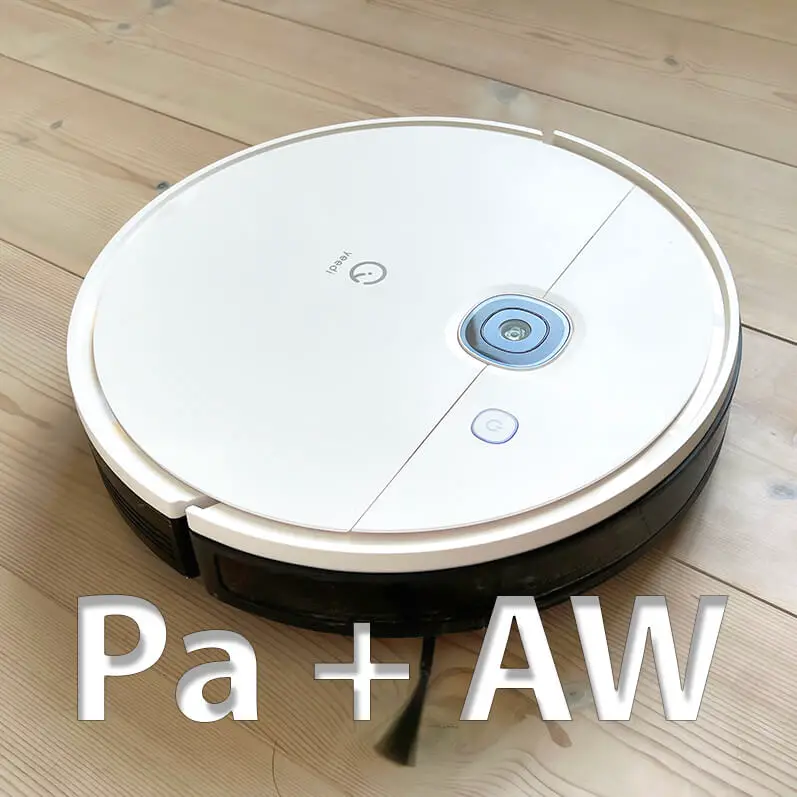Paragraph 1: Have you ever wondered what the term “PA” means when shopping for a vacuum cleaner? Well, you are not alone. PA is a common term used to measure the suction power of a vacuum cleaner. In this article, we will dive deeper into what PA means and its significance in choosing the right vacuum cleaner for your needs.
Paragraph 2: Understanding the PA rating system is essential when purchasing a vacuum cleaner. PA stands for Pascal, which is a unit used to measure the amount of pressure exerted on a surface. In vacuum cleaners, it measures the suction power, which is the ability to pick up dirt, dust, and debris from surfaces. So, the higher the PA rating, the more powerful the vacuum cleaner is, making it more efficient in cleaning your home.
Pa stands for Pascal, which is the unit of measurement for air pressure. In a vacuum cleaner, it refers to the suction power of the machine. The higher the Pa value, the more powerful the suction. This means that the vacuum cleaner can effectively remove dirt and dust from carpets, upholstery, and floors. When selecting a vacuum cleaner, it’s essential to consider the Pa value to ensure that you’re getting the right machine for your needs.

What Is PA in Vacuum Cleaner? Understanding the Power of Your Vacuum
If you’re in the market for a new vacuum cleaner, you’ve probably noticed that many models are advertised with a measurement called “PA.” But what exactly does this mean, and how can it help you choose the right machine for your needs?
What Does PA Mean?
PA stands for “pascal,” which is a unit of pressure measurement used in many industries, including vacuum cleaners. In simple terms, a vacuum cleaner’s PA rating measures the strength of its suction power. The higher the PA number, the stronger the suction and the more effective the vacuum will be at picking up dirt and debris.
How Is PA Measured?
To measure a vacuum cleaner’s PA rating, manufacturers use a device called a manometer. This tool measures the difference in pressure between the vacuum’s intake and exhaust ports, which indicates how much suction power the machine is producing. The manometer records this pressure difference in pascals, which is then used to calculate the vacuum cleaner’s PA rating.
What Is a Good PA Rating?
The ideal PA rating for your vacuum cleaner depends on your specific cleaning needs. For example, if you have thick carpets or pet hair to clean up, you’ll want a vacuum with a higher PA rating to ensure that it can effectively suction up all the dirt and debris. A PA rating of 20,000 or higher is considered excellent for most household cleaning tasks.
Benefits of High PA Ratings
If you’re wondering why a high PA rating is important, consider the following benefits:
Better Suction Power
A vacuum with a higher PA rating will have stronger suction power, which means it can pick up more dirt and debris from your floors and carpets. This can result in a cleaner home and less time spent cleaning.
Improved Air Quality
Vacuums with weaker suction power may not be able to pick up all the dirt and debris in your home, which can lead to poor indoor air quality. A vacuum with a high PA rating will be able to effectively remove more particles from your home, improving the air quality and making your home a healthier place to live.
Efficient Cleaning
A vacuum with a higher PA rating will be able to clean your home more efficiently, as it will require fewer passes over the same area to pick up all the dirt and debris. This can save you time and effort, leaving you with more free time to enjoy your clean home.
PA vs. Other Vacuum Ratings
While PA ratings are an important consideration when choosing a vacuum cleaner, there are other ratings to keep in mind as well. Here’s a quick overview:
Cubic Feet per Minute (CFM)
CFM measures the volume of air that a vacuum cleaner can move in a minute. This rating is important for larger debris, such as leaves or sticks, as it indicates how quickly the vacuum can move them off your floors.
Airspeed
Airspeed measures the velocity of the air moving through the vacuum cleaner. This rating is important for smaller debris, such as dust and pet hair, as it indicates how quickly the vacuum can suction them up.
Watts
Watts measure the amount of power that a vacuum cleaner uses. While a higher wattage may seem like a good thing, it doesn’t necessarily mean that the vacuum has better suction power. Instead, watts can be an indicator of how energy-efficient the vacuum is.
Conclusion
When choosing a vacuum cleaner, it’s important to consider all the ratings and measurements, including the PA rating. A vacuum with a high PA rating will have better suction power, which can lead to a cleaner home and better indoor air quality. By understanding what PA means and how it’s measured, you’ll be able to choose the right vacuum cleaner for your specific cleaning needs.
Frequently Asked Questions
Below are some frequently asked questions about “What Is Pa in Vacuum Cleaner?”
What is Pa in vacuum cleaner?
Pa in vacuum cleaner stands for Pascals, a unit of measurement used to determine the suction power of a vacuum cleaner. It is a measurement of the strength of the vacuum’s suction. A higher Pa value indicates a stronger suction power that can easily pick up dirt and debris from carpets, floors, and other surfaces.
The suction power of a vacuum cleaner is dependent on several factors, such as the motor power, the design of the suction nozzle, and the filtration system. In general, the higher the Pa value, the better the vacuum cleaner’s suction power, and the more effective it is at cleaning dirt and debris from surfaces.
What is the ideal Pa value for a vacuum cleaner?
The ideal Pa value for a vacuum cleaner depends on several factors, such as the type of surface being cleaned and the amount of dust and debris on the surface. In general, a vacuum cleaner with a Pa value of 20,000 or higher is considered powerful and effective for cleaning carpets and floors. However, for delicate surfaces such as curtains, upholstery, and hard floors, a lower Pa value of around 10,000 may be more appropriate to avoid damaging the surface.
It is also important to note that a vacuum cleaner with a high Pa value may not necessarily be better than a vacuum cleaner with a lower Pa value. Other factors such as the filtration system, the design of the suction nozzle, and the motor power play a crucial role in the overall effectiveness of the vacuum cleaner.
What is the difference between Pa and CFM in vacuum cleaners?
Pa and CFM are both units of measurement used in vacuum cleaners to determine the suction power. Pa measures the strength of the suction power, while CFM (cubic feet per minute) measures the volume of air that the vacuum cleaner can move in a minute.
While Pa is a more accurate measurement of the suction power, CFM is a better indicator of the airflow of the vacuum cleaner. A higher CFM value means that the vacuum cleaner can move more air, which is important for picking up larger debris such as leaves and twigs.
How does the Pa value affect the noise level of a vacuum cleaner?
The Pa value of a vacuum cleaner is directly proportional to the noise level of the vacuum cleaner. A vacuum cleaner with a higher Pa value will produce more noise than a vacuum cleaner with a lower Pa value.
However, the noise level of a vacuum cleaner is also dependent on other factors such as the motor power, the design of the suction nozzle, and the filtration system. A vacuum cleaner with a high Pa value but a well-designed suction nozzle and filtration system can be just as effective and quiet as a vacuum cleaner with a lower Pa value.
What are some factors to consider when choosing a vacuum cleaner based on the Pa value?
When choosing a vacuum cleaner based on the Pa value, it is important to consider several factors, such as the type of surface being cleaned, the amount of dust and debris on the surface, and the noise level of the vacuum cleaner.
It is also important to consider other factors such as the filtration system, the design of the suction nozzle, and the motor power, as these factors play a crucial role in the overall effectiveness of the vacuum cleaner. Additionally, it is important to choose a vacuum cleaner that is easy to use and maintain, and that is durable and reliable.
Vacuum Cleaners Doylestown PA: Doylestown Pennsylvania Vacuum Cleaner/All About Vacuums
In conclusion, Pa or Pascal is a unit of measurement used to quantify the suction power of a vacuum cleaner. It refers to the amount of pressure that the vacuum cleaner can create to lift the dirt and dust particles from the surfaces it is cleaning.
Understanding the Pa rating of a vacuum cleaner is essential when choosing the right model that suits your cleaning needs. The higher the Pa rating, the more powerful the suction of the vacuum cleaner, and the more efficient it will be in cleaning your home.
When shopping for a vacuum cleaner, it is important to consider the type of surfaces you will be cleaning, the level of dirt and debris, and the size of your home. With this information, you will be able to choose a vacuum cleaner with the appropriate Pa rating that will make cleaning a breeze.
In summary, whether you are a homeowner or a professional cleaner, understanding the Pa rating of a vacuum cleaner is crucial in selecting the right model for your cleaning needs. So, go ahead and pick the perfect vacuum cleaner with the right Pa rating to keep your home or office spotless.

